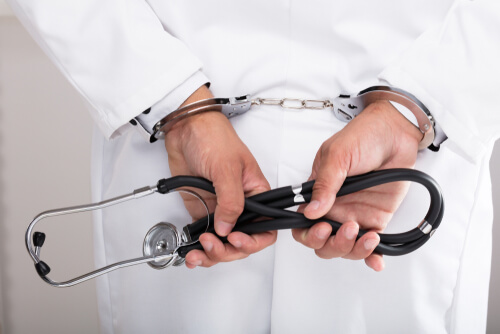
The Legal Process for Filing a Medical Malpractice Lawsuit
Posted by on 2024-09-20
The Legal Process for Filing a Medical Malpractice Lawsuit
Navigating the complexities of a medical malpractice lawsuit can be daunting, yet it is often necessary for those who have suffered harm due to the negligence of healthcare providers. Understanding the legal process involved in filing a medical malpractice claim is crucial for anyone considering this course of action. This essay will outline the essential steps and considerations involved in pursuing such a case.
The journey begins with recognizing that medical malpractice has occurred. Medical malpractice arises when a healthcare professional fails to provide the standard level of care, leading to patient harm. It’s important to differentiate between an unfortunate medical outcome and actual negligence. To establish negligence, one must show that there was a breach in the standard of care that directly caused injury or damage.
Once you suspect malpractice, the first step is to consult with an experienced medical malpractice attorney. These legal professionals specialize in this complex field and can offer invaluable guidance. During an initial consultation, they will evaluate your case by reviewing medical records and other pertinent information. If they believe there is sufficient evidence to support your claim, they will agree to represent you.
Next comes the pre-litigation phase, which varies from state to state but generally involves several preliminary steps before officially filing a lawsuit. One common requirement is obtaining a certificate of merit from an independent medical expert who reviews your case and confirms that it has merit based on their professional opinion. This step aims to prevent frivolous lawsuits by ensuring that only legitimate claims proceed.
Armed with this certification, your attorney will draft a complaint—a formal legal document outlining your allegations against the healthcare provider or institution. The complaint details how the standard of care was breached and how this breach caused harm. Once filed with the court, it becomes part of public record and marks the official start of your lawsuit.
Upon filing the complaint, the discovery phase commences. Discovery is an exhaustive process where both parties gather evidence through depositions, interrogatories (written questions), and subpoenas for documents like medical records and expert testimonies. This stage is critical as it allows both sides to build their cases by uncovering facts and gathering supporting evidence.
Following discovery, many cases go into mediation or settlement discussions before reaching trial. Mediation involves a neutral third party who facilitates negotiations between you and the defendant in hopes of reaching an amicable resolution without going to court. Settlements are often preferred as they save time, money, and emotional stress associated with lengthy trials.
If mediation fails or if either party prefers not to settle out-of-court, then the case proceeds to trial. In court, both sides present their arguments supported by evidence collected during discovery. Expert witnesses play pivotal roles here; their testimonies can sway juror opinions regarding whether there was indeed negligence causing harm.
After hearing all arguments presented over days—or even weeks—the jury deliberates on whether malpractice occurred based on preponderance-of-evidence standards (more likely than not). If found liable for negligence resulting in damages incurred by you as plaintiff(s), defendants may be ordered compensatory payments covering everything from medical expenses incurred due injuries sustained through lost wages & pain/suffering endured during recovery periods post-injury events themselves too!
In conclusion: while navigating legal processes surrounding filing successful med-mal lawsuits might seem overwhelming initially—especially given intricacies inherent within such cases themselves—it remains vital avenue recourse seeking justice/reparations following negligent acts impacting one’s health/life overall! By understanding each step involved—from initial consultations right up until possible jury verdicts delivered—you'll feel better equipped handling whatever challenges lie ahead along way toward achieving fair outcomes deserved ultimately!